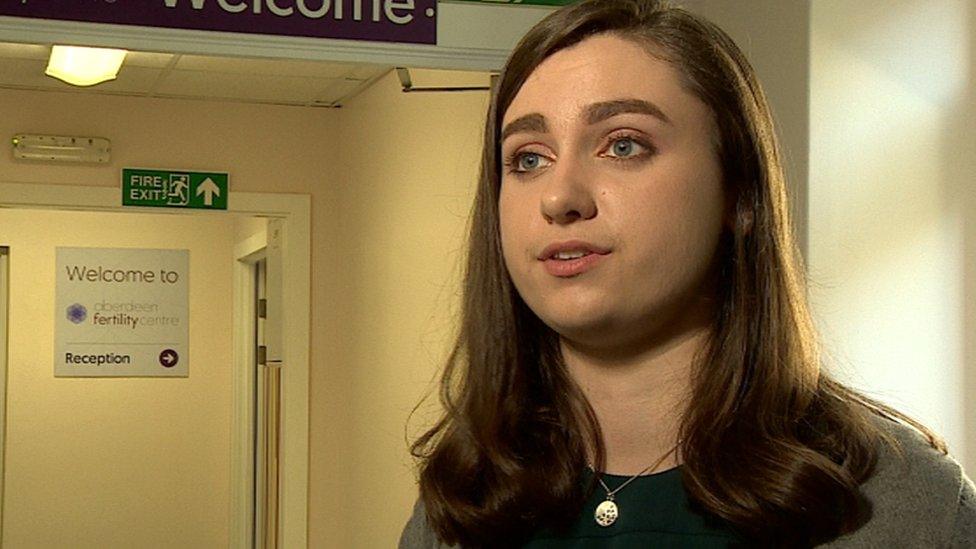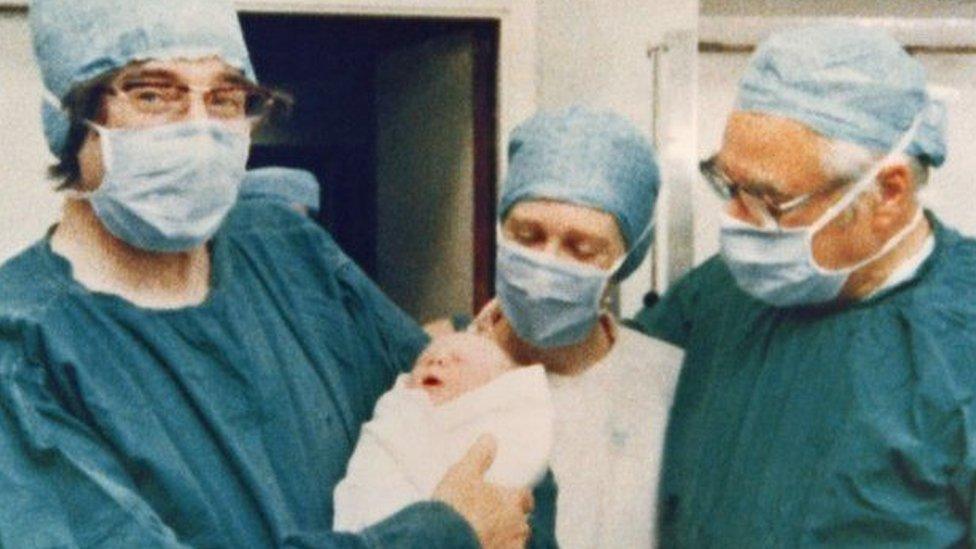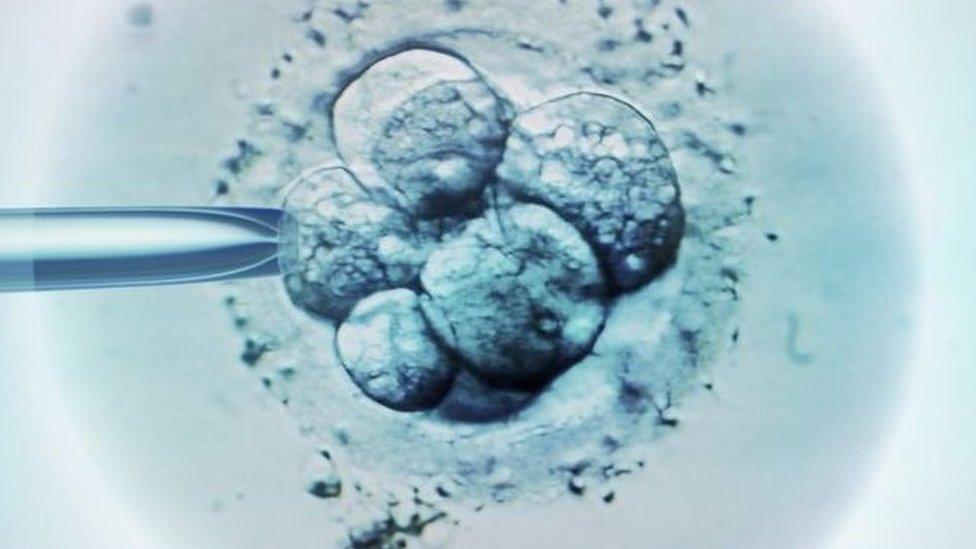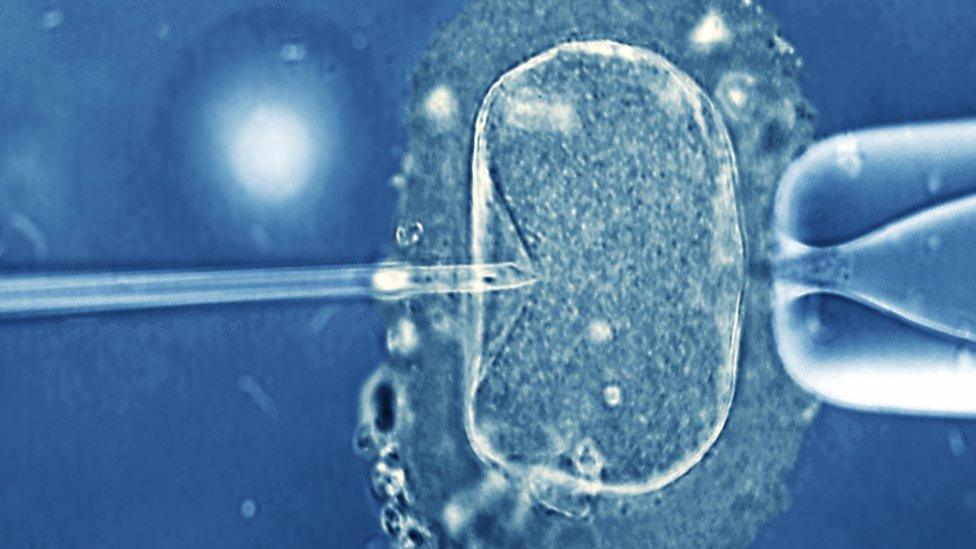Miscarriage study points to IVF success chances
- Published

Mothers-to-be who miscarry during the first round of IVF are more likely to have a baby with further treatment than those who did not get pregnant, researchers have said.
The University of Aberdeen study looked at data for more than 100,000 women.
The results showed that those who miscarried during the first cycle had a 40.9% chance of having a baby over two further cycles of IVF.
There was a 30.1% chance for those who did not conceive in the first cycle.
Offer reassurance
And women who gave birth following their first full cycle of IVF had a 49% chance of giving birth again in subsequent IVF cycles.
It is hoped the study can offer "reassurance" to those considering their options.
The study - published in Human Reproduction - examined data from more than 112,000 women who started IVF treatment between 1999 and 2008.

Fertility facts
One in six couples in the UK experiences problems conceiving
Infertility in women is linked to age - the biggest decrease in fertility begins during the mid 30s
Common causes of infertility in women include lack of regular ovulation, blockage of the fallopian tubes and endometriosis
For 25% of couples the cause of infertility is unexplained
In men, the most common cause of infertility is poor quality of semen
More than five million people had been born as a result of IVF or Icsi (intracytoplasmic sperm injection) by the end of 2013

The study was carried out by fourth year medical student Natalie Cameron, led and supported by Dr David McLernon, Prof Siladitya Bhattacharya, and Dr Sohinee Bhattacharya.

Natalie Cameron led the research
Ms Cameron said: "Miscarriage can be a devastating experience for any couple, but especially for those who have already struggled with infertility.
"This, coupled with the emotional and financial burden of multiple cycles of treatment can make many couples lose confidence and give up.
"We hope our findings will provide reassurance to these couples as they consider their options for continuing treatment."
IVF was pioneered by biologist Robert Edwards who, with gynaecologist Patrick Steptoe, fertilised the first human egg in a Cambridge laboratory in 1978.

IVF pioneers Robert Edwards (L) and Patrick Steptoe (R) pose with the world's first IVF baby, Louise Brown
- Published6 September 2017

- Published17 November 2016
